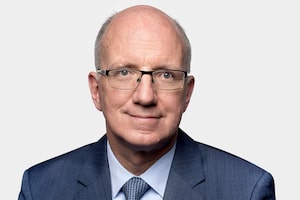
Petro-Canada is building electric-vehicle charging stations at many outlets, and now offers customers a place to plug in their EVs every 250 kilometres from Halifax to Victoria.Christopher Katsarov/The Canadian Press
Suncor Energy Inc. SU-T has taken its Petro-Canada retail division off the auction block after concluding it could extract more value by keeping the familiar brand and streamlining the operations as gasoline demand wanes in the coming decades.
Calgary-based Suncor said Tuesday its board unanimously decided to retain the business after completing a four-month review as part of an agreement with hedge fund Elliott Investment Management LP. The firm launched a shareholder activist campaign last spring and pushed for a sale as a way for Suncor to raise cash and focus efforts on its oil sands operations. Under that settlement, Elliott installed three directors on Suncor’s board.
Kris Smith, Suncor’s interim chief executive officer, said the company tested interest in Petro-Canada among 17 global industry players and investors. Two-thirds passed on the opportunity, and the remaining proposals ranged from buying just a portion of the cross-Canada network, offering only partly cash to purchase it or suggesting a price that failed to reflect what Suncor believes Petro-Canada is worth as part of the company’s integrated structure.
Suncor pegged the net market value of the business at $3.8-billion to $5.7-billion, which was similar to its view of how much it is worth within the company. However, a sale process could have dragged on for 18 to 24 months, given the regulatory hurdles associated with selling a brand accounting for almost a fifth of gasoline sales in Canada. Alimentation Couche-Tard Inc., Parkland Corp. and 7-Eleven Inc., all active in Canadian gasoline retailing, had been widely expected to look at the assets.
Opinion: Fate of Petro-Canada rests with Suncor’s need for speed
“This thorough and comprehensive independent market check affirmed the board’s views that, despite the strength and attractiveness of our retail business, there’s limited appetite for an all-cash purchase at what we would consider a significant market premium,” Mr. Smith said at a Suncor investor event.
“Considering the unique benefits of Petro-Canada retail coupled with Suncor’s strong execution track record within that business, the board unanimously decided it’s in the shareholders’ best long-term interest to retain retail and continue to optimize the network to enhance cash flow and value generation.”
The retail business, known for its maple leaf logo, sells 90 per cent of the refined products Suncor’s refineries pump out. It gave the company a cushion in 2020, when fuel demand tumbled during the first year of COVID-19. That, and Petro-Canada’s convenience stores, fast-food offerings and Petro-Points loyalty program, should also prove advantageous as gasoline demand falls by as much as 25 per cent over the next two decades, Mr. Smith said.
Now, Suncor will look at shrinking the retail network to increase value at the busiest and most profitable sites, Mr. Smith said. That could affect half of “underperforming” company-owned locations. Suncor controls 50 per cent of the 1,600 Petro-Canada stations and the rest are dealer-owned or operated in partnerships.
At the same time, Suncor will invest in the rest of the network to achieve a 20-per-cent increase in financial returns and boost market share, he said. Suncor chair Mike Wilson said that will include striking strategic partnerships with non-fuel-related businesses such as quick-service restaurants, convenience stores and “energy transition offerings.”
Petro-Canada is building electric-vehicle charging stations at many outlets, and now offers customers a place to plug in their EVs every 250 kilometres from Halifax to Victoria. The EV network is part of Suncor’s overall emission reduction strategy.
Elliott’s campaign also pushed for operational and safety improvements at Suncor, following a string of fatalities in the oil sands business in northern Alberta. Then Suncor CEO Mark Little had said change was already under way, but Elliott’s arguments took on more weight in July when another worker was killed on the job. Mr. Little resigned following the incident.
At the investor event, Suncor executives described how the company is overhauling its safety culture. Part of that involves hiring fewer contractors for its work sites.
Officials from the hedge fund were not available Tuesday to comment on Suncor’s decision to retain Petro-Canada, which they had said could fetch as much as $9-billion. Suncor shares fell 1.7 per cent to close at $45.43 on the Toronto Stock Exchange. They are up 44 per cent this year.
Menno Hulshof, analyst at Toronto-Dominion Bank, said in a note to clients that Suncor’s decision made good strategic sense, as the retail division provides “very strong vertical integration” and real-time information on fundamentals of the North American fuel business. It will help manage the impact of the shift to zero-emission vehicles as well, he wrote.
Suncor also said Tuesday it plans to spend $5.4-billion to $5.8-billion on its operations in 2023, with the aim of producing 740,000 to 770,000 barrels of oil a day.
 Jeffrey Jones
Jeffrey Jones Andrew Willis
Andrew Willis